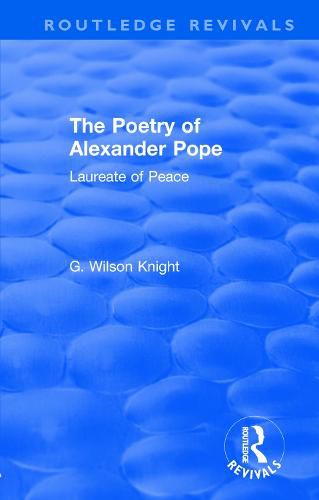Readings Newsletter
Become a Readings Member to make your shopping experience even easier.
Sign in or sign up for free!
You’re not far away from qualifying for FREE standard shipping within Australia
You’ve qualified for FREE standard shipping within Australia
The cart is loading…






First published in 1955, this exegesis on the writings of Alexander Pope reveals the technical felicities of his poetry, and is the first to be devoted to the great meaning inherent in his work. One section, which has appeared before and did much to redirect the study of Pope, has been thoroughly revised. Of the other four chapters, one offers an original of The Temple of Fame, and, while discussing this neglected poem, makes several suggestions which may be said to constitute a significant advance in aesthetics. Another analyses Byron’s support of Pope, regarding it as a landmark in the history of English literary criticism and as necessary to the understanding of Pope and Byron alike. The last chapter discusses the relation of Pope’s thought to our own time. This book adds much to what is already known of Pope, and will go far in reviving an interest in the work and philosophy of the Laureate of Peace.
$9.00 standard shipping within Australia
FREE standard shipping within Australia for orders over $100.00
Express & International shipping calculated at checkout
First published in 1955, this exegesis on the writings of Alexander Pope reveals the technical felicities of his poetry, and is the first to be devoted to the great meaning inherent in his work. One section, which has appeared before and did much to redirect the study of Pope, has been thoroughly revised. Of the other four chapters, one offers an original of The Temple of Fame, and, while discussing this neglected poem, makes several suggestions which may be said to constitute a significant advance in aesthetics. Another analyses Byron’s support of Pope, regarding it as a landmark in the history of English literary criticism and as necessary to the understanding of Pope and Byron alike. The last chapter discusses the relation of Pope’s thought to our own time. This book adds much to what is already known of Pope, and will go far in reviving an interest in the work and philosophy of the Laureate of Peace.